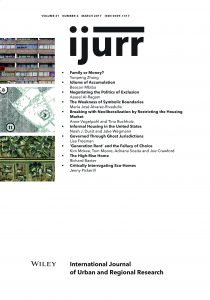This article examines the lived experiences of property dispossession caused by the World Expo 2010 in Shanghai. Specifically, it examines the category of the family, which is overlooked in the existing literature, and probes into the political production of family conflicts and breakdowns. It characterizes the prevailing regime of dispossession in contemporary China as decentralized legal authoritarianism and argues that the organization of the Expo-induced dispossession deviated from this because of the distinctive state structures involved. For this reason, tensions within the state apparatus were temporarily suspended, leading to reduced opportunity for resistance. The state’s monopoly of symbolic production rendered contesting claims to property ownership illegitimate and made monetary compensation the only option. This turned confrontation with the state into domestic disputes. Organized as a state-led project, dispossession also exploited displacees’ past experiences of a ‘caring’ state or state terror, giving rise to different attitudes towards displacement and thus causing more family disputes. Moreover, mobilization of the entire state apparatus also permitted the use of coercive and violent means without legal and moral concerns. Tactics that manipulated, and in some cases completely severed, relations within and beyond the displaced families are explored in depth. The article concludes with a call to change the ways that dispossession has been conceived and conducted in practice.

